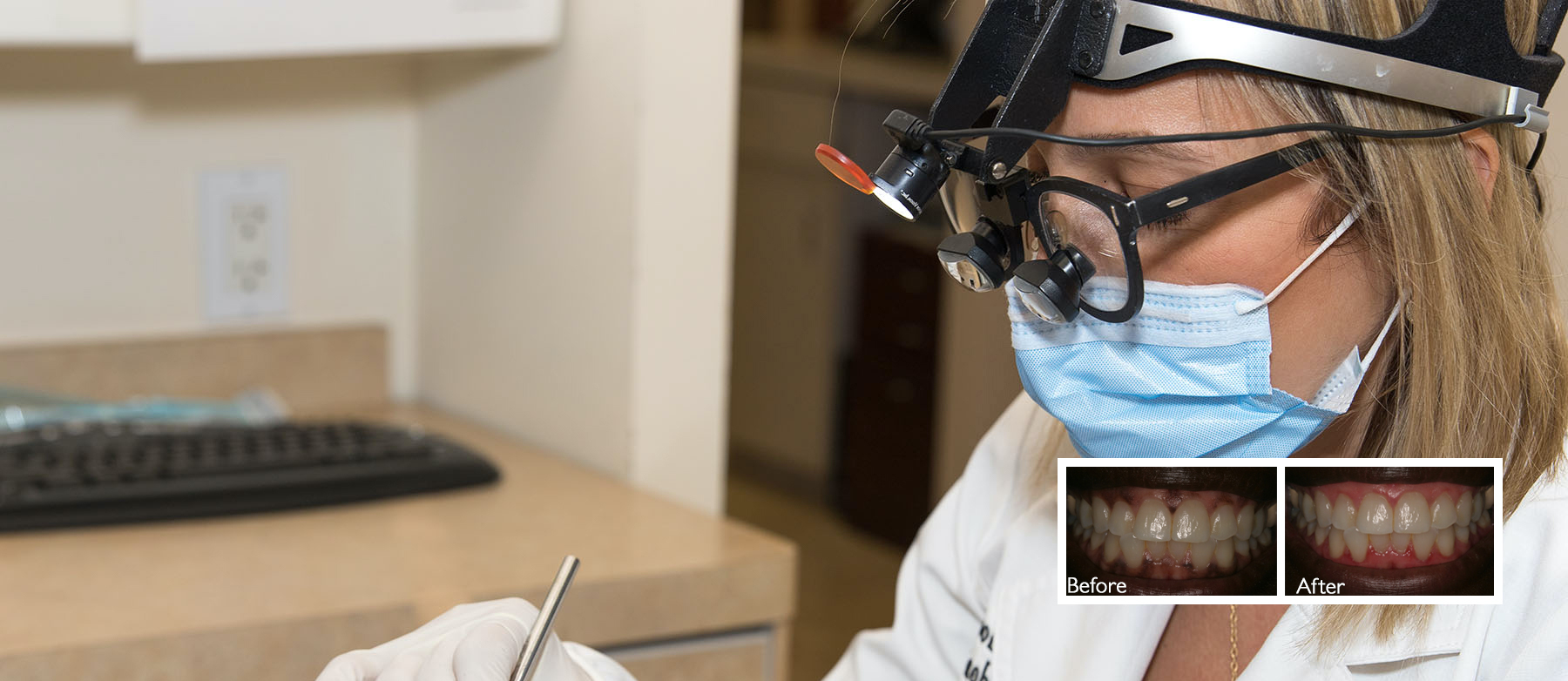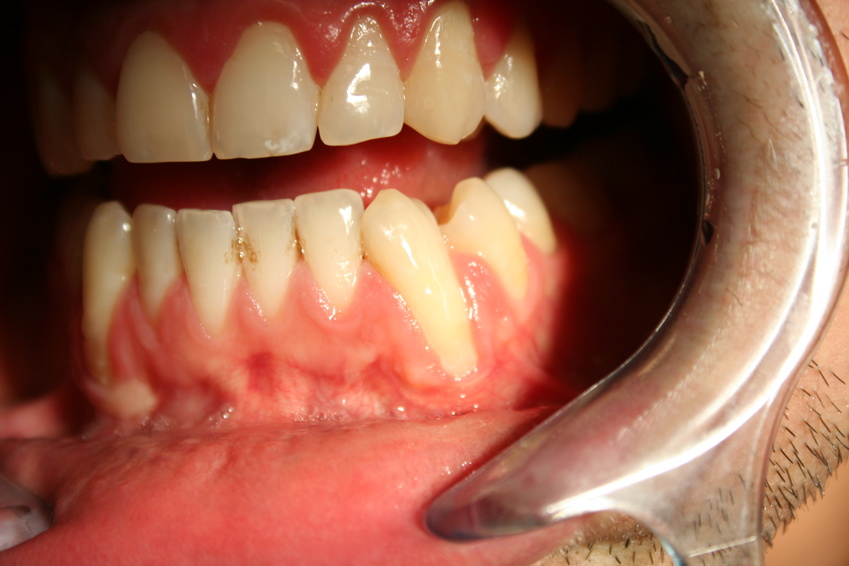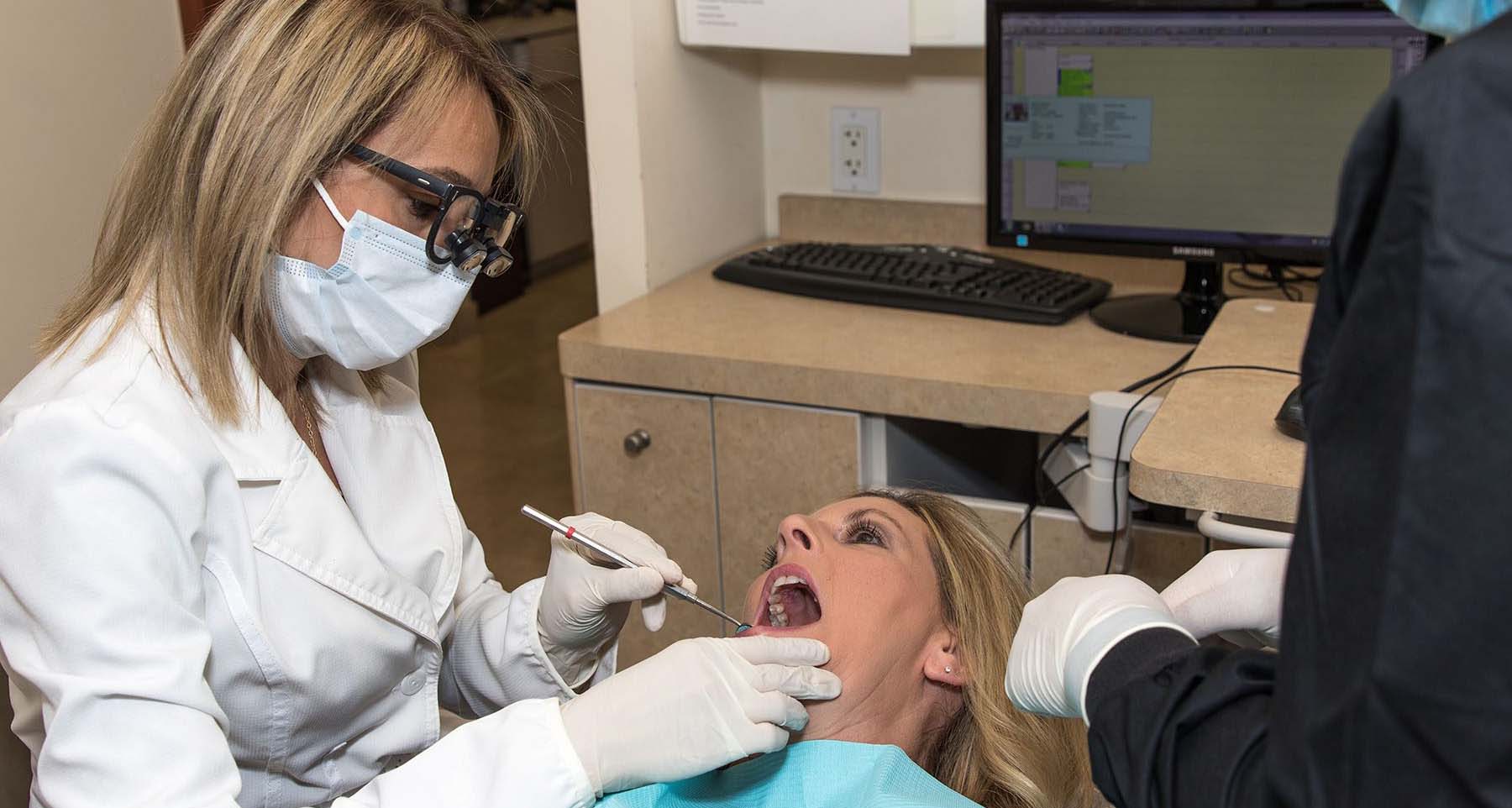What is gum disease?
Gum disease is also called periodontal disease, which is the top cause of tooth loss in people over 18. You can have a mild cause of inflammation or a severe and serious disease. This disease can result in massive damage to your soft tissue and bone that supports your teeth.
This disease is referred to as periodontitis. This term for the advanced form of gum disease means ‘inflammation around the tooth.’ Do not feel alone if you suffer from periodontitis because it affects one-half of all Americans over the age of 30, which is about 64.7 million people.
When you are suffering from periodontitis, your gums will begin to pull away from your teeth. This separation causes small pockets between your teeth and gums. Over time, food and debris get into these pockets, and the pouches become infected.
Once these pockets become infected, you will lose bone, and the teeth will become loose. Eventually, your teeth can fall out due to bone loss. Most people believe tartar and food cause gum disease, but in reality, they only contribute to the disease.
Bacteria from these items is behind all forms of periodontal disease. Brushing your teeth and flossing regularly can help decrease your risk of gum disease. However, a wide variety of other factors can influence the severity of the periodontal disease.
These factors include smoking, certain prescription medicines, some over-the-counter medicines, illegal drug usage, diabetes, other long term health issues, and genetic susceptibility. One of the best ways to decrease the risk of periodontal disease is to visit a dentist regularly. Call Southland Dental Care at 818-788-8787 for a complimentary dental consultation in Los Angeles.
What are some signs or symptoms of gum disease?
The American Academy of Periodontology is an association for those dentists who specialize in the diagnosis, prevention, and treatment of periodontal disease. These dentists also are interested in other conditions that affect the gums and the structures that support the teeth. These professionals also specialize in dental implants.
This non-profit association advocates for early detection of gum disease because it can prevent further damage and potential tooth loss. Periodontal disease is a silent type of illness. This statement means most symptoms may not appear until you are in the advanced stages of the disease.
Gum inflammation or gingivitis is usually the first stage of periodontitis disease. However, not all cases of gingivitis turn into periodontitis. When gingivitis first starts, you will see bacteria build-up causing inflammation in the gums. Sometimes this inflammation causes your teeth to bleed during brushing.
During this first stage of gingivitis, your teeth are still firmly in the sockets without bone or tissue damage. As the gingivitis progresses into periodontitis, you may experience the following signs or symptoms:
- Flossing, brushing or eating hard food causes bleeding in the gums
- Gums are red, swollen, or tender
- Pain in your mouth
- Your teeth appear to be longer due to gums receding from teeth\
- Teeth are loose or separating
- Sores affecting your gums
- Bad breath which is persistent
- Pus formed between your teeth and gums
- Your bite has changed
- Partial dentures do not fit correctly
If you or your child experience any of the above symptoms, you should visit a dentist. A dentist can determine if you have gum disease, and he or she will be able to provide treatment before irreversible damage happens.
Can I get dental implants with gum disease?
When you get implants, it generally takes three phases to complete the procedure. The first phase is your oral surgeon or dentist will place a tiny implant into the jawbone. This implant becomes the root of the new tooth.
The second phase is the implant combining with the jawbone. This combining is how the strong anchor for the new tooth is created. During this phase, a person can reject the implant, or other rare issues may happen. However, typically, it goes smoothly for the individual.
The final phase of dental implants comes after you are completely healed from the placement of the implant. During this phase, a unique, customized tooth will be placed on top of the anchor. This tooth is permanent and should not be replaced unless damaged.
However, before starting the implant procedure, you have to be a viable candidate. In other words, you have to have any periodontal disease treated. As stated above, advanced periodontal disease can cause gum recession and bone loss. This recession and loss can reduce the chances of having dental implants.
After your gum disease is treated, your professional will decided if you can have dental implants. In some instances, a person with severe periodontal disease can suffer extensive bone loss. If you have suffered from this bone loss, you may need a bone graft procedure before you can place implants.
When a person suffers from a more advanced case of periodontal disease, it becomes less likely he or she will be a candidate for dental implants. However, a wide array of other treatment options such as dentures are available.
Dental Implants and Gum Disease
If you are a viable candidate for dental implants, they can help restore your oral health and smile. When you experience loose or missing teeth, dental implants can help you regain your confidence. Dental implants have been referred to as one of the most significant advancements in dentistry in the last 40 years by the American Dental Association.
Dental implants can be customized based on color, size, and fit. This ability and the fact they work wonders below the gum line makes them the best replicate for your natural teeth. It is vital to remember that research suggests that dental implants also do not contribute to an increased risk of tooth decay, root canal issues, or gum disease.
The best part of implants is they are created with titanium and other materials, which are entirely compatible with your body and will integrate with the bone. The implant will also provide a stimulus that helps prevent the jawbone from deteriorating.
At Southland Dental Care, you will have a complete treatment plan to help you understand the process of dental implants and gum disease. It also gives you time to review and research questions you may have about the process. Call today for a free consultation with our expert staff.












